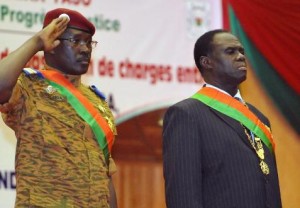Moody’s says return to normalcy in Burkina Faso is credit positive

Moody’s Investors Service says the restoration of Burkina Faso’s interim President Michel Kafando last week after an attempted coup, is a credit positive.
After swift international action, backed by street protests which left a reported 10 people dead and about 100 injured, Michel Kafando announced Wednesday September 23, that he was back in charge, a week after being arrested and detained by the elite presidential guard, still loyal to publicly-ousted former president Blaise Compaoré.
Kafando was arrested and detained with interim Prime Minister Yacouba Isaac Zida, and in their place, General Gilbert Diendéré, an aide to Compaoré installed himself as the country’s new leader.
According to Moody’s, the re-establishment of the interim government of Kafando, a former UN diplomat well known to the international community, is credit positive particularly as it has been investor-friendly.
“The transitional government of Mr. Kafando, in the year it has held the reins of power, has demonstrated its support of international investors, and in particular the gold mining sector which made up an average 70 per cent of total export earnings in the past three years”, the rating agency said.
Moody’s notes that in line with the government’s policy of promoting mining as “a pillar of economic and social growth”, the country adopted a new mining code in late June to replace its 12-year-old mining regulations, reducing regulatory uncertainty while respecting clauses in existing deals.
Secondly Moody’s believes “the interim government has demonstrated a willingness and ability to maintain macroeconomic stability and strengthen public financial management, as evidenced in the International Monetary Fund’s (IMF’s) second and third reviews published in July under the country’s extended credit facility arrangement.“
Moody’s says successful continuation and the recently awarded augmentations of the IMF programme is very important for Burkina Faso especially as the prices of its main exports, gold and cotton, are weakening and the country’s currency, the CFA franc (pegged to the euro), is depreciating against the dollar.
Burkina Faso’s interim government came to power in late 2014, after a popular uprising ended Blaise Compaoré’s attempt to extend his 27-year rule.
Tensions have since arisen from whether or not the interim government would allow allies of Mr. Compaoré to run in elections set for October; compounding tensions was the recommendation by a commission charged with promoting reforms, that the elite presidential guards close to former President Compaoré, be disbanded.
By Emmanuel Odonkor
